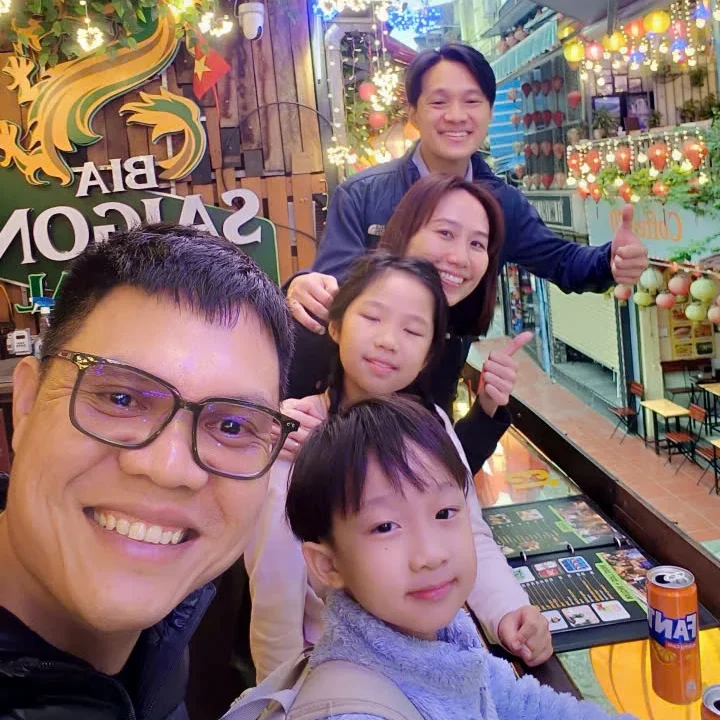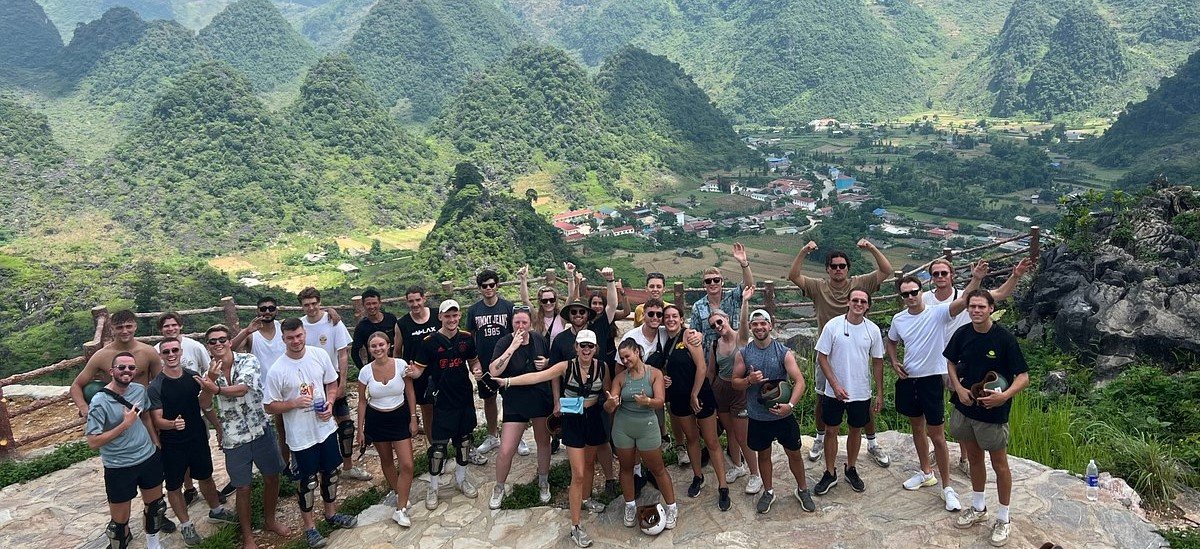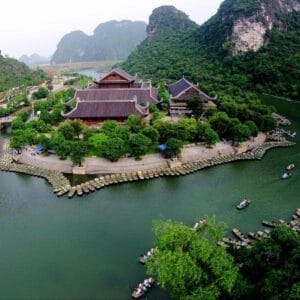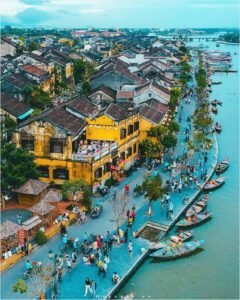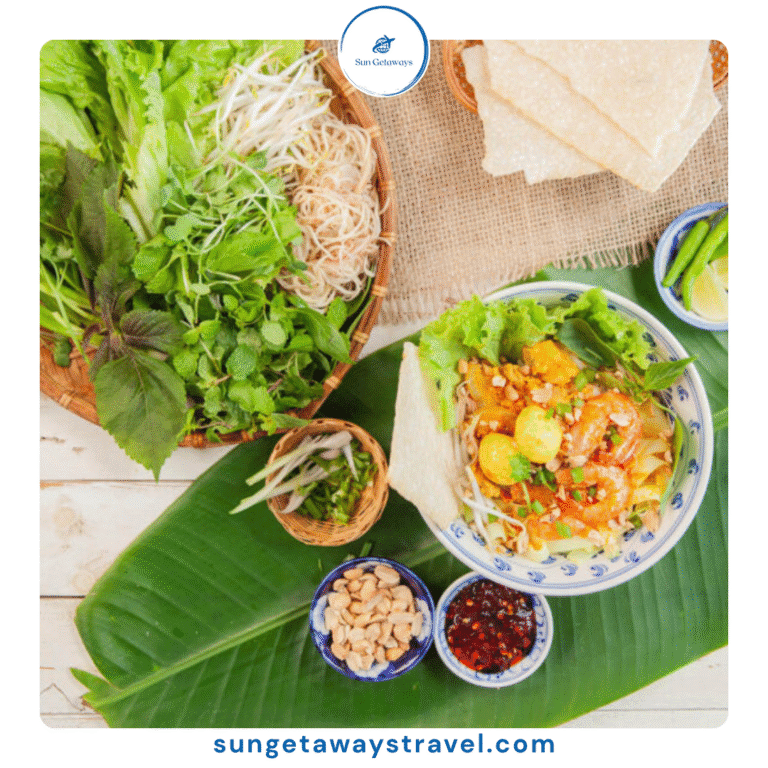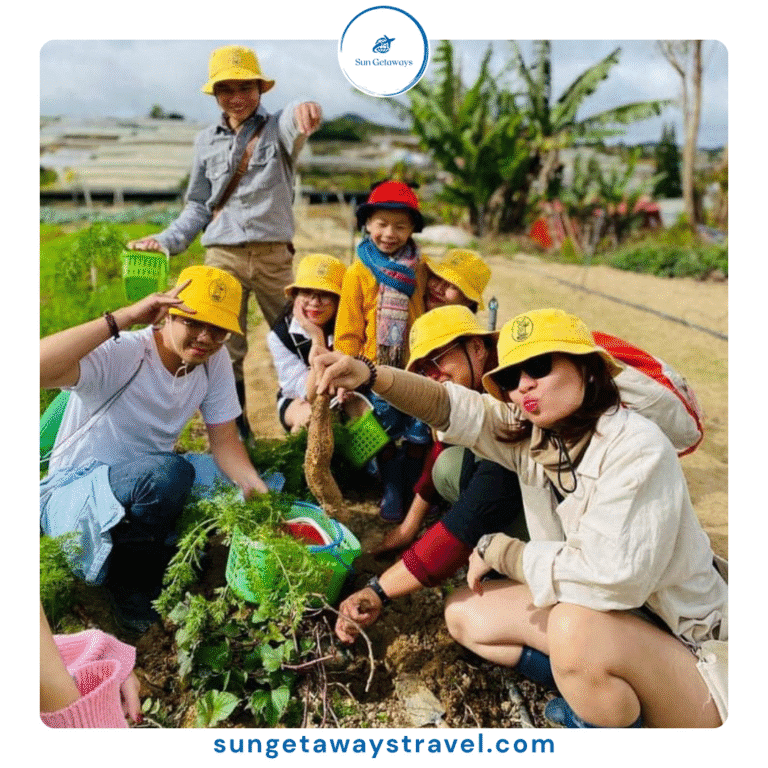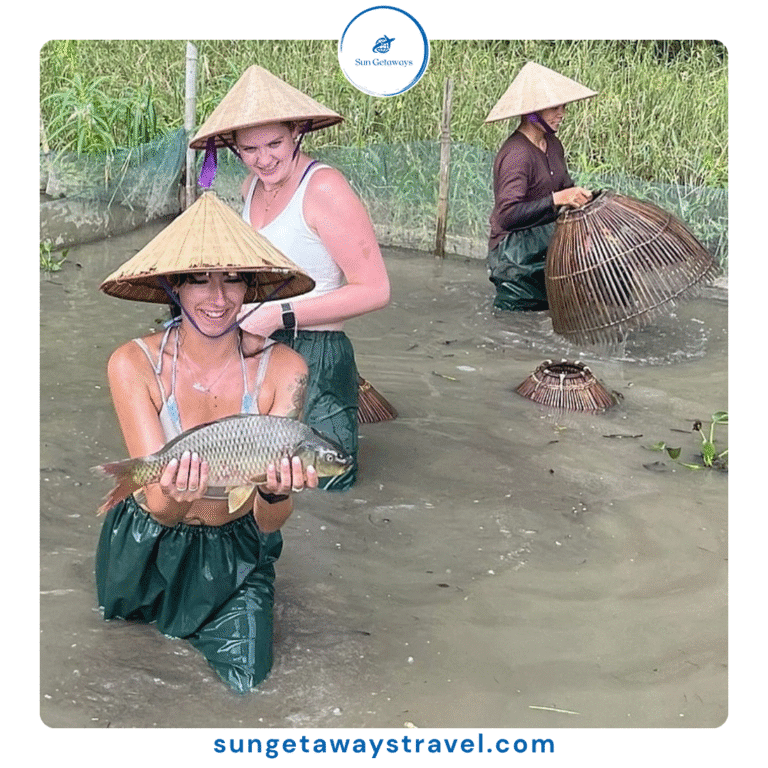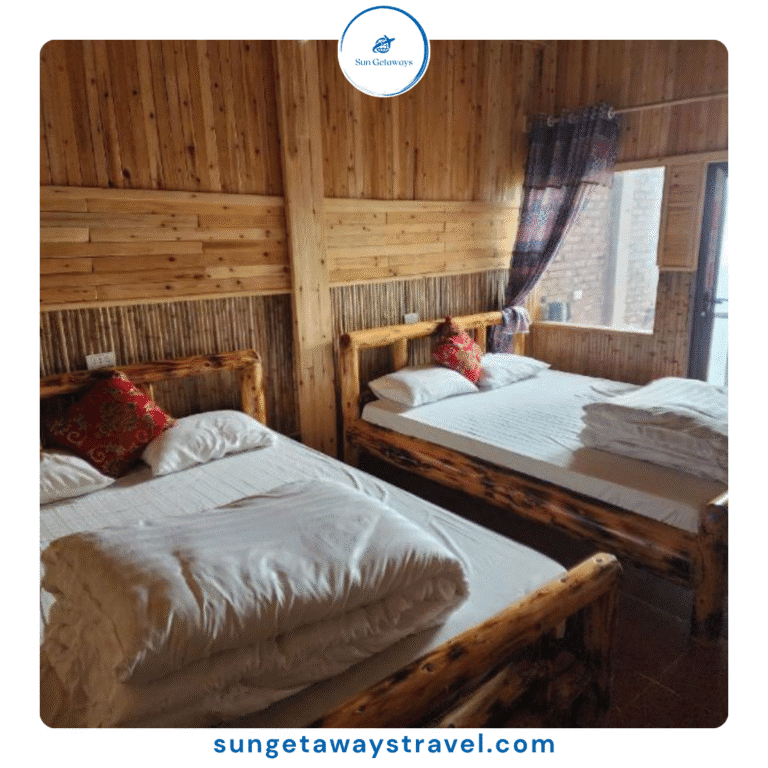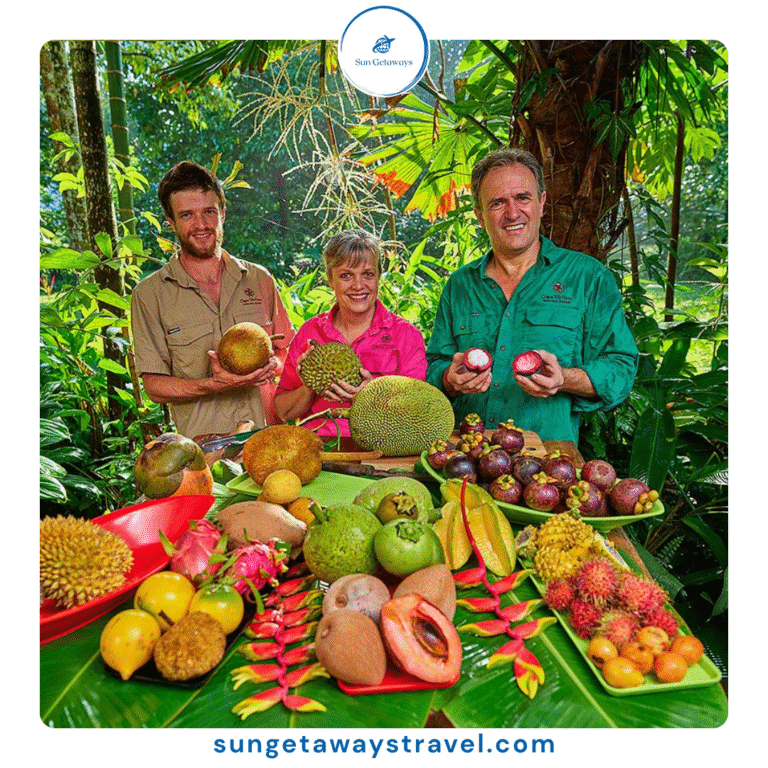A Deep Dive into Vietnamese Eco Farming and Sustainable Agriculture Vietnam
Vietnam, with its poetic rice fields, peaceful villages, and a culture deeply rooted in harmony with nature, offers much more than just stunning landscapes. Over the past decade, a profound shift has occurred in travel, with visitors seeking meaningful journeys that reconnect them with the land, the food they eat, and the people who cultivate it. This rising demand is why Vietnamese eco farming has emerged as one of the country’s fastest-growing and most rewarding travel trends.
This comprehensive guide transforms the general concept of farm visits into a focused look at how agri-tourism contributes directly to sustainable agriculture Vietnam and preserves centuries of cultural heritage.
Key Takeaways
- Heritage Preservation: Vietnamese eco farming is now essential for preserving traditional, non-mechanized farming techniques against rapid modernization.
- Economic Impact: The sector provides rural families with diversified, stable income, directly supporting sustainable community development.
- Unique Immersion: Activities focus on hands-on skills—like using water buffaloes and traditional irrigation—offering profound cultural immersion.
- Ethical Travel: Choosing transparent, locally owned farms ensures your visit actively contributes to sustainable agriculture Vietnam goals and ethical animal welfare.
- Sun Getaways Travel specializes in crafting tailored tour, ethical, and immersive Vietnamese eco farming itineraries.
1. The Critical Role of Vietnamese Eco Farming in Modern Sustainability
The interest in Vietnamese eco farming experiences is surging among modern travelers who seek meaningful, ethical, and educational trips. This shift is not just a trend; it’s a response to the growing global demand for activities that promote sustainability and authenticity. These eco-tourism sites are vital community-driven models that directly support Vietnam’s long-term environmental and social development goals:
Socio-Economic Value and Preservation Model
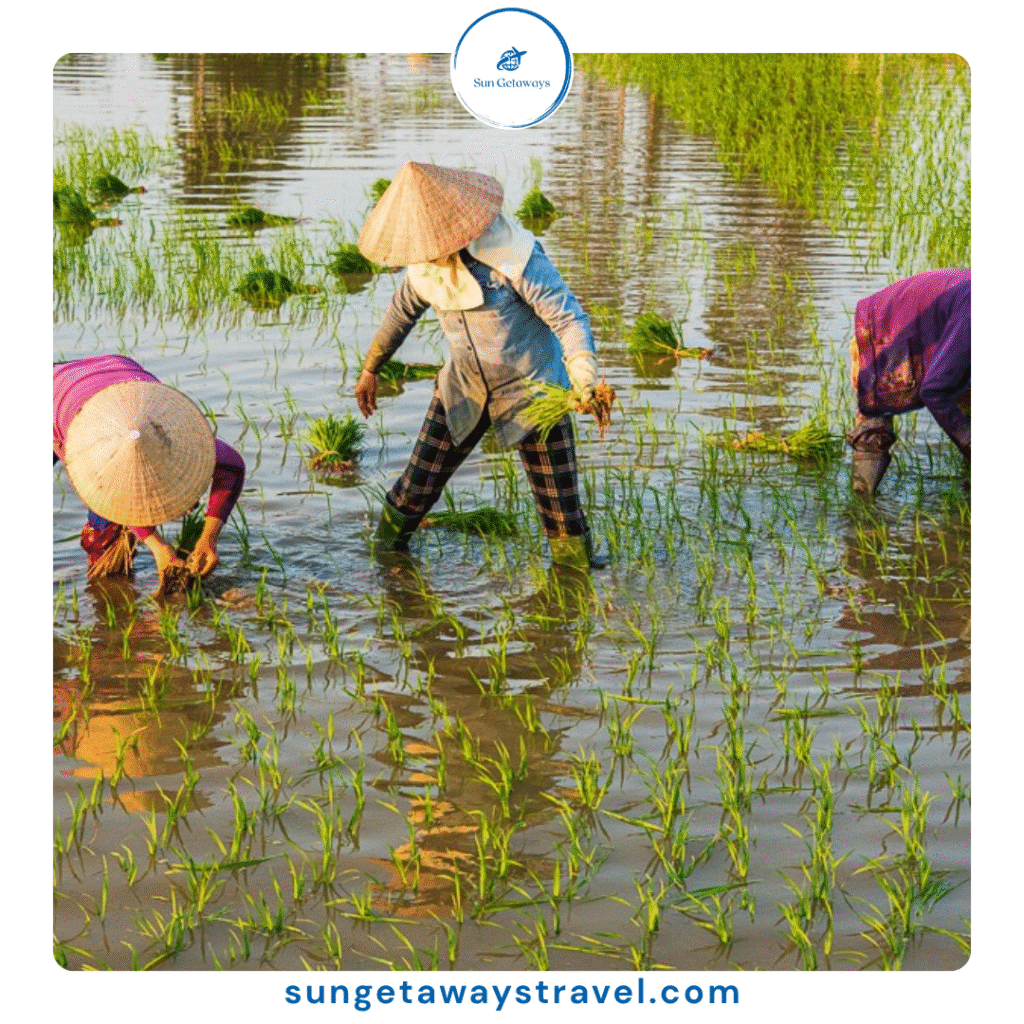

- Rural Income & Stability: Eco-tourism provides reliable, diversified income streams for rural families, often proving more stable than single-crop farming based on volatile export prices. Data suggests that farm stay in Vietnam income can boost a family’s revenue by up to 40% during peak tourist seasons.
- Biodiversity Protection: These farms often practice polyculture (growing multiple crops) and preserve local, heirloom seed varieties (rice, herbs, indigenous fruits). This actively contributes to local food security and biodiversity protection—a core tenet of sustainable agriculture Vietnam.
- Preservation of Traditional Skills: Activities showcased, like using traditional shoulder baskets for watering or manual fishing nets, keep ancient farming techniques alive and visible—skills that might otherwise be lost to urbanization and mechanization.
- Conscious Consumption: By engaging in Vietnamese eco farming, visitors gain a firsthand understanding of the immense effort required to produce food, fostering a more conscious and respectful relationship with their food sources.
Many farms actively blend organic farming practices with animal care, allowing visitors to experience the symbiotic cycle between plants, animals, and people firsthand.
2. A Day in the Life: What to Expect from Vietnamese Eco Farming Tours
Forget passive observation. A tour focused on Vietnamese eco farming is a rich, hands-on experience, offering full cultural immersion and practical skills that define rural life.
Hands-On Heritage and Culinary Skills
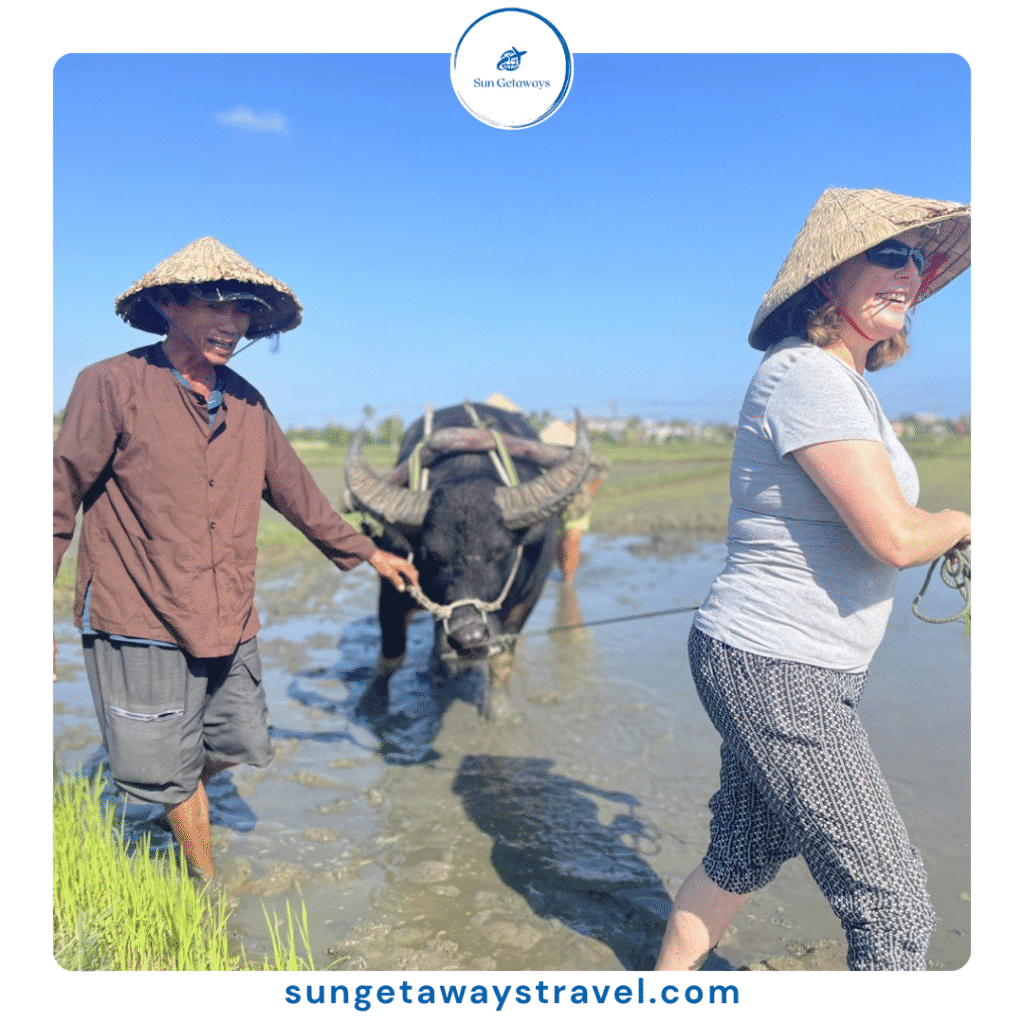

- Organic Planting Workshops: Learn how to prepare soil beds, sow seeds, and tend to crops using traditional, no-chemical methods (often relying on natural fertilizers like river silt, compost, or seaweed). This practical work is the foundation of sustainable agriculture Vietnam.
- Water Buffalo Interaction & Riding: Enjoy fun, ethical interactions with gentle water buffaloes—the historical ‘tractor’ of Vietnam—including washing, feeding, and short riding experiences across the rice fields.
- Traditional Fishing Techniques: Try hands-on activities like net-casting or setting up traditional basket traps in scenic ponds or rice fields, often followed by cooking your catch.
- Herbal Medicine Lessons: Discover the traditional usage of Vietnamese herbs, learning how local farmers use ingredients like lemongrass, perilla, and ginger for natural healing and wellness remedies.
- Farm-to-Table Cooking: The ultimate reward. Prepare your lunch or dinner using fresh, organic ingredients you harvested just hours earlier—a culinary highlight of the farm-to-table experiences in Vietnam.
If you’re ready to trade spreadsheets for spade work, Sun Getaways Travel designs farm & animal farming experience in Vietnam tours tailored to your style, handling all the logistics so you can focus on the soil.
3. Regional Specialization: Eco Farming Across Vietnam’s Landscape
Vietnamese eco farming is highly localized, with each region specializing in distinct crops and traditional methods, offering unique cultural and agricultural experiences.
Regional Eco-Farming Highlights
- Hội An – Vegetable Villages & Water Buffalo Experiences:
- Trà Quế Village is famous for its organically grown herbs, utilizing traditional shoulder basket watering techniques and nutrient-rich river silt. This small community has maintained its traditional methods for over 300 years.
- Sapa – Mountain Farming with Ethnic Groups:
- Experience high-altitude farming on terraced rice fields. Engage with the Hmong and Dao communities to learn sustainable highland techniques, including complex irrigation systems and the raising of small livestock (goats and chickens). For an immersive experience, consider a rural homestays in Vietnam in this region.
- Mekong Delta – Fruit Orchards & Riverside Farms:
- The region offers a vibrant landscape specializing in tropical fruit orchards. Activities here focus on aquaculture integration, feeding ducks, and fruit farm tours in Vietnam like rambutan, pomelo, and durian from riverside farms.
- Đà Lạt – High-Tech Green Agriculture:
- As Vietnam’s cool-climate farming hub, Đà Lạt offers specialized greenhouse tours, organic dairy experiences, and insights into modern sustainable agriculture Vietnam initiatives, including hydroponics and automated climate control.
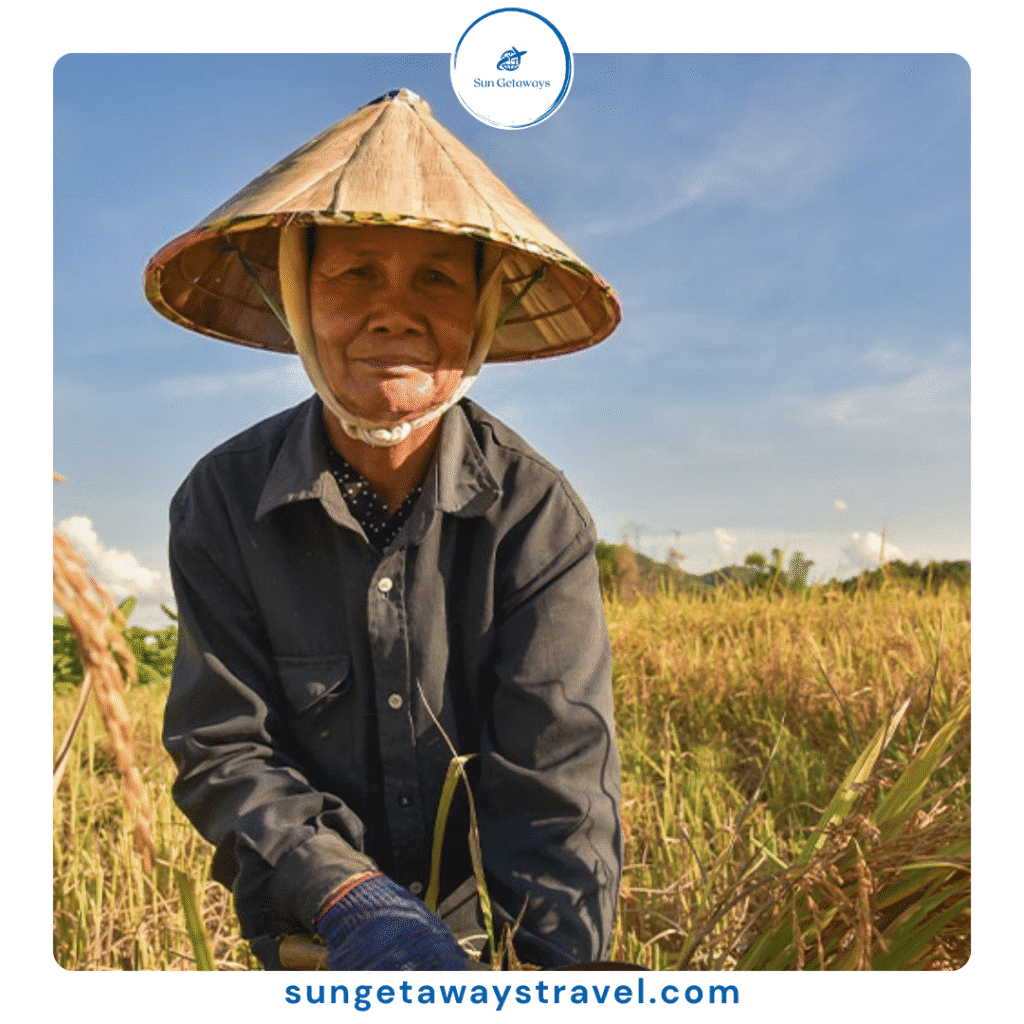

Not sure which eco-farm is right for you? Contact Sun Getaways Travel (WhatsApp)—our team will match you with a personalized and responsible itinerary that ensures genuine local immersion.
4. Expert Insight: Emma’s Perspective on Agri-Tourism’s Impact
To understand how Vietnamese eco farming fits into modern travel and sustainability goals, we spoke with Emma, a tourism consultant with 12 years of experience designing and managing ethical tours across Vietnam.
According to Emma:
“Travelers today want authenticity. They don’t just want to see Vietnam—they want to participate. Vietnamese eco farming tours allow them to reconnect with nature while directly supporting rural families. The beauty of these experiences is that every action, from planting a seed to feeding a buffalo, brings travelers closer to understanding Vietnam’s soul and the effort behind its food security.”
Emma also notes that this agri-tourism sector is a powerful bridge between consumer demand and local sustainable agriculture Vietnam. This support helps communities gain stable income while ensuring the preservation of essential cultural farming practices for the next generation, preventing rural heritage loss. For a deeper dive into Vietnam’s agricultural offerings, explore our guide on farming activities for tourists in Vietnam.
5. Ethical Choices: How to Select Your Vietnamese Eco Farming Experience
Not every farm operates ethically or sustainably. Before booking your trip contributing to sustainable agriculture Vietnam, careful selection is key to ensuring your money supports genuinely responsible operations.
| Ethical Consideration | Why It Matters for Vietnamese Eco Farming | Actionable Tip for Travelers |
| Ethical Practices | Confirms the farm avoids harmful chemicals (crucial for organic certification) and treats animals humanely, not just as props. | Look for verifiable organic certifications or ask directly about no-chemical practices and animal welfare standards. |
| Community Impact | Ensures your fee supports the local economy, not just large external tourism operators. | Choose farms that are locally owned or have clear programs demonstrating direct benefit to the village or Vietnam ethnic communities group. |
| Transparency & Control | Prevents over-tourism that can damage the farm’s environment and disrupt local life. | Ask if visitor numbers are controlled and ensure cultural interactions are respectful and non-exploitative (e.g., always ask before taking photos). |
| Water and Waste Management | Sustainable farms must manage their waste and water usage responsibly, especially in the drought-prone Central Highlands or flood-prone Delta. | Observe the farm’s irrigation methods and look for clearly designated waste separation areas. |
| Fair Wages | Ensures the farmers and guides are compensated fairly for their time and expertise, reflecting the value of their cultural knowledge. | Book through certified, ethical agencies that guarantee fair compensation to the local guides and hosts. |
6. Practical Tips for an Authentic Vietnamese Eco Farming Trip
Vietnamese eco farming is immersive, hands-on, and beautifully unpredictable—prepare for genuine interaction!


- Dress Appropriately: Wear comfortable clothes you do not mind getting dirty (mud, soil, water splashes are likely!). Light fabrics and long sleeves are recommended for sun protection. For more tips, refer to our Vietnam packing guide.
- Essential Protection: Bring sunscreen, insect repellent, and a hat. The sun can be intense, and insects are part of the natural farm environment.
- Mindset: Be open to new experiences—mud, animals, and surprises! Embrace the manual labor; remember, you are participating, not just observing.
- Respect the Rhythm: Respect local customs and the farming rhythms. Farmers start early, and patience is necessary when working with traditional equipment or animals.
- Deeper Context: Always choose guided tours for a deeper cultural context; guides can translate complex farming techniques and community stories, enhancing your understanding of sustainable agriculture Vietnam.
7. The Future of Vietnamese Eco Farming and Agri-Tourism
Vietnamese eco farming is not just a trend; it’s a major investment in Vietnam’s rural future. Travelers participate, not just buying a tour. They are investing in conserving traditional landscapes and boosting rural economic stability. The government has increasingly prioritized sustainable agriculture Vietnam, and agri-tourism is becoming a recognized tool for achieving these goals. As infrastructure improves, expect to see more specialized and remote eco-farms opening their gates, offering even deeper immersion into the heart of rural Vietnam.
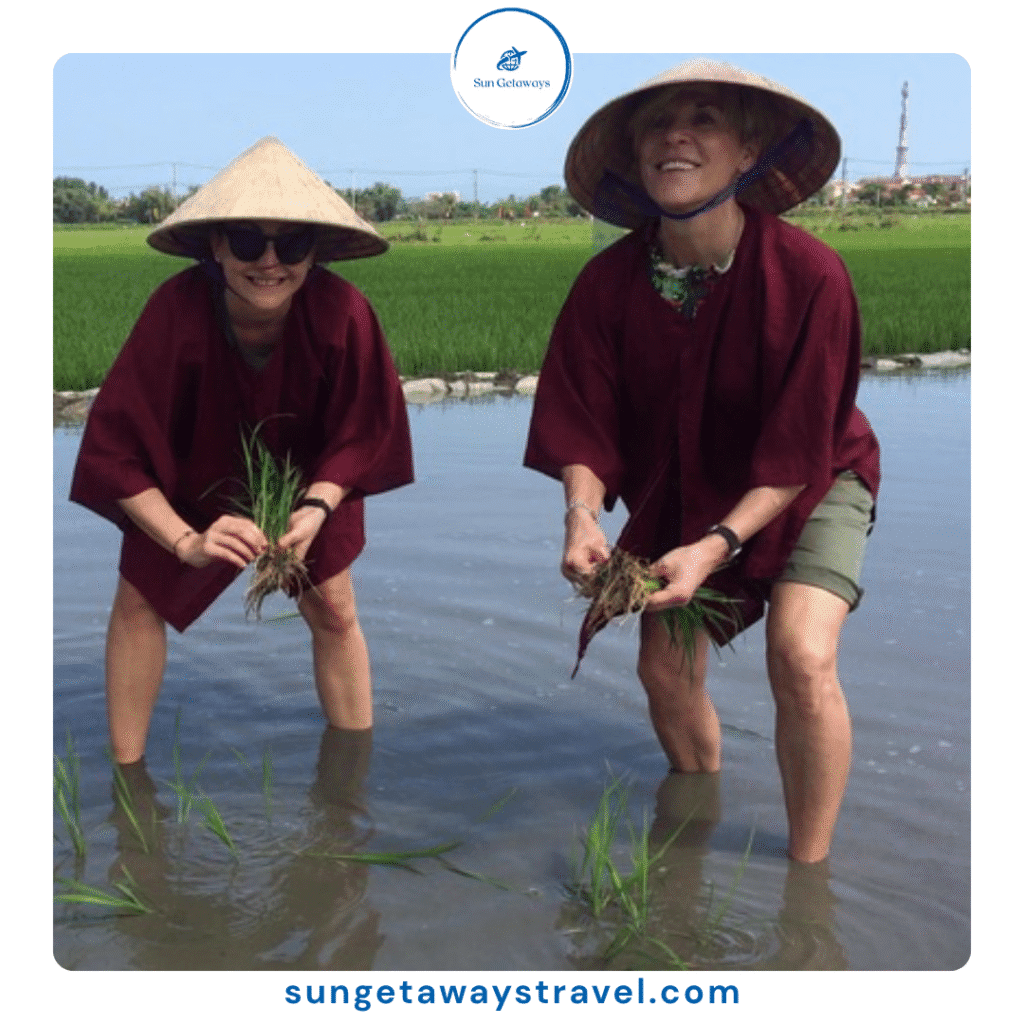

Would you like me to find information on ethical volunteering on farms in Vietnam for travelers who wish for an extended stay?
8. Why Book Tours with Sun Getaways Travel
With years of experience organizing sustainable countryside tours, Sun Getaways Travel works directly with trusted local farmers and communities, ensuring every experience is safe, ethical, and meaningful.
Our Commitment to Ethical Travel:
- Direct Community Support: We guarantee that a significant portion of your tour fee goes directly to the local families and farmers hosting you.
- Vetted Ethics: We thoroughly vet all farm partners to confirm their commitment to animal welfare and verifiable organic (or no-chemical) practices.
- Logistics & Comfort: We handle all the difficult logistics, from specialized rural transport to booking farm-to-table meals, ensuring your comfort without compromising authenticity.
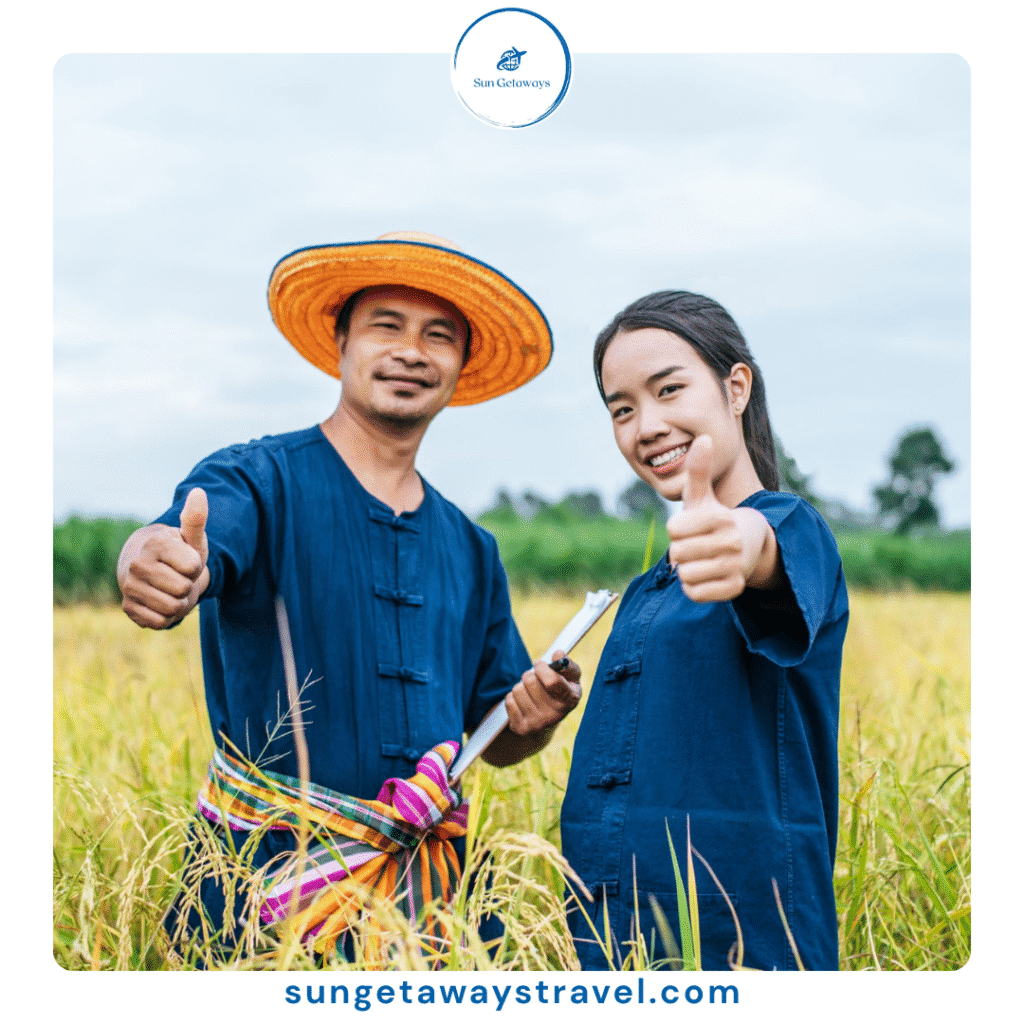

We curate:
- Eco farming day trips with ethical animal interaction.
- Buffalo & animal interaction tours.
- Herbal village experiences.
- Farm-to-table cooking workshops.
- Multi-day countryside retreats focusing on sustainable agriculture Vietnam.
If you’d like a custom eco-farming itinerary crafted around your interests, our team is here to help you design a meaningful journey.
FAQs
| Question | Short Answer |
| 1. What is Vietnames eco farming tourism? | It’s a hands-on travel experience where visitors learn organic farming techniques and interact ethically with animals on local Vietnamese farms. |
| 2. Are eco farming experiences ethical? | Yes—reputable farms prioritize sustainable agriculture Vietnam, animal welfare, and respectful cultural exchange. Always choose a vetted operator. |
| 3. Can beginners join eco farming activities? | Absolutely. Activities are simple, guided, and suitable for all ages and fitness levels. |
| 4. What animals can I interact with? | Primarily gentle water buffaloes, ducks, chickens, goats, and sometimes fishing or aquaculture experiences—depending on the farm’s focus. |
| 5. What should I wear for these tours? | Comfortable, lightweight clothes that you don’t mind getting dirty, and sturdy, closed-toe shoes. |
Ask a question
Leave a Comment (0)
No questions yet. Be the first to ask a question!

